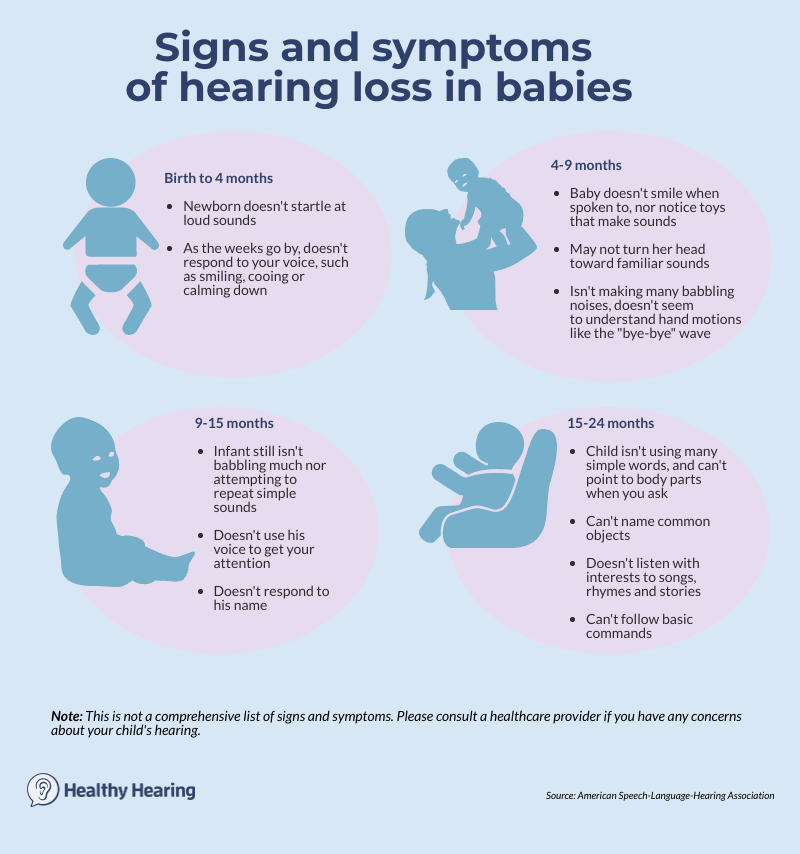|
www.HealthyHearing.com |
How hearing aids help kids learn better
Contributed by Joy Victory, managing editor, Healthy Hearing It's well-known that untreated hearing loss can impact school performance. Fortunately, though, research also shows that hearing aids and other interventions (such as cochlear implants) can help minimize the impact of pediatric hearing loss. For example, the Outcomes of Children with Hearing Loss (OCHL) study showed that hearing-impaired children learn language and speech better when they use hearing aids. Kids also benefit from the help of an educational audiologist. 
help, the better. Researchers followed 180 preschool-aged hearing-impaired children recruited through records of universal newborn screening and referrals from clinical service providers from six U.S. states. All of the children who wore hearing aids experienced better speech and language development compared to children with untreated hearing loss. The study also found that the longer the child had worn hearing aids, the better their speech and language development. "The cautionary note from our research is that any degree of hearing loss, even mild, can place children at risk. Our study shows that the risk can be minimized with early and aggressive intervention,” said Bruce Tomblin, an emeritus professor in the University of Iowa’s Department of Communication Sciences and Disorders, in a news release. Why hearing is important to speech and language developmentThe ability to hear well affects more than our ability to communicate; it also impacts a child's development of vocabulary and sentence structure, academic achievement, social interaction and career choice. According to the American Speech-Language-Hearing Association, there are four major ways that hearing loss can affect children:
Hearing impaired children have trouble learning abstract words like "before" and "after" and understanding words with multiple meanings. They often have trouble hearing certain sounds, such as "s", "sh", "f", "t", "k" and "ed," which affects the sentences they construct and the words they include in their vocabulary. While the gap between children with normal hearing and those with hearing loss widens as they age, children with hearing loss can catch up if they receive proper diagnosis and treatment. When should hearing-impaired children get treatment?As soon as possible. Medical experts state that babies with confirmed permanent hearing loss should receive hearing aids or similar treatment by the age of six months to give them the earliest start for full language and speech development. Nearly all babies in the US undergo newborn hearing screening at the hospital. But if your baby passed her newborn or infant hearing tests and you still suspect she is not hearing well, you may want to read our article on hearing loss in infants and babies to see if she needs further evaluation.
My child is in elementary school. How do I know if she needs hearing aids?Sometimes hearing loss isn't detectable when children are really young, which is why many public schools hold regular screenings to catch hearing loss in kids in kindergarten, first, second, third grades and beyond. If your child showed signs of hearing loss during her school screening, follow the school's recommendations for following up. On the other hand, if she did pass her screening but you still suspect your school-age child has hearing loss, don't wait for a school screening or for it to come up at a regular doctor's appointment. Most pediatricians work with audiologists who are trained in testing and treating kids for a broad range of hearing disorders. Keep in mind in that some kids, what seems like hearing loss may actually be a neurological condition such as auditory processing disorder or ADD/ADHD. Hearing aids for kidsChildren as young as four weeks old can be fit with hearing aids and hearing assistive technology systems. The most common type of hearing aid for infants and young children fits behind-the-ear (BTE) because the earmold can accommodate a wide variety of hearing losses, is easy to clean and adjust, and can be detached and remade as your child grows. Other options besides hearing aidsIf your child has profound to severe hearing loss that hearing aids won't treat, they may be a candidate for a cochlear implant, a medical device that is surgically implanted to bypass the damaged part of the cochlea and stimulate the auditory nerve. They also might be better served by a different device known as a bone-anchored hearing system. Your child's doctor and hearing care specialists can help you determine which treatment is best for your child's overall hearing health. Hearing loss at school: ALDs and educational audiologists can helpThere's no doubt that hearing aids and cochlear implants are important for school, but there are plenty of things to consider beyond their hearing devices. Background noise in classrooms can be so intense that hearing aids may not be enough. Assistive listening devices and systems, such as FM systems, may be recommended. Getting your child the right help can be overwhelming -- an important resource for your family is an educational audiologist. 
services of an educational audiologist. What is an educational audiologist?An educational audiologist (EdAud) is a hearing healthcare professional who works with children with hearing loss to make sure they receive maximum support in the classroom. This may include making recommendations for acoustic modifications in the classroom, fitting hearing assistive technology and counseling parents and teachers about your child’s hearing loss. In many school systems, an educational audiologist is part of the team which develops Individualized Education Program (IEP). Once the plan is in place, the EdAud can fit hearing assistive technology (HAT) to each child requiring it and make sure each child is able to access the curriculum. How to advocate for your childBecause educational audiology is a related service under the Individuals with Disabilities Act (IDEA), your child is entitled to have access to an EdAud. In a July 2017 article for Wrightslaw, Educational Audiologist Kym Meyer provides these suggestions for securing educational audiology for your child:
Once an EdAud has been identified for your child, touch base with them on a regular basis. Keep them informed of any physical or social developments and ask questions about your child’s progress. The more the EdAud knows about your child and his hearing loss, the better equipped she will be to customize the services your child needs in order to be successful in the classroom. Don't delay treatment for your child's hearing lossWhen it comes to limiting the impact of hearing loss on language and learning, the important thing is to seek treatment quickly, regardless of when your child's hearing loss is discovered. Bottom line: Research indicates early intervention not only enhances speech and language development, but also improves social skills and academic success. Joy Victory, managing editor, Healthy Hearing
|
Featured clinics near me
Earzlink Hearing Care - Reynoldsburg
7668 Slate Ridge Blvd
Reynoldsburg, OH 43068

Find a clinic
Need a hearing test but not sure which clinic to choose?
Call 1-877-872-7165 for help setting up a hearing test appointment.



 Joy Victory has extensive experience editing consumer health information. Her training in particular has focused on how to best communicate evidence-based medical guidelines and clinical trial results to the public. She strives to make health content accurate, accessible and engaging to the public.
Joy Victory has extensive experience editing consumer health information. Her training in particular has focused on how to best communicate evidence-based medical guidelines and clinical trial results to the public. She strives to make health content accurate, accessible and engaging to the public.